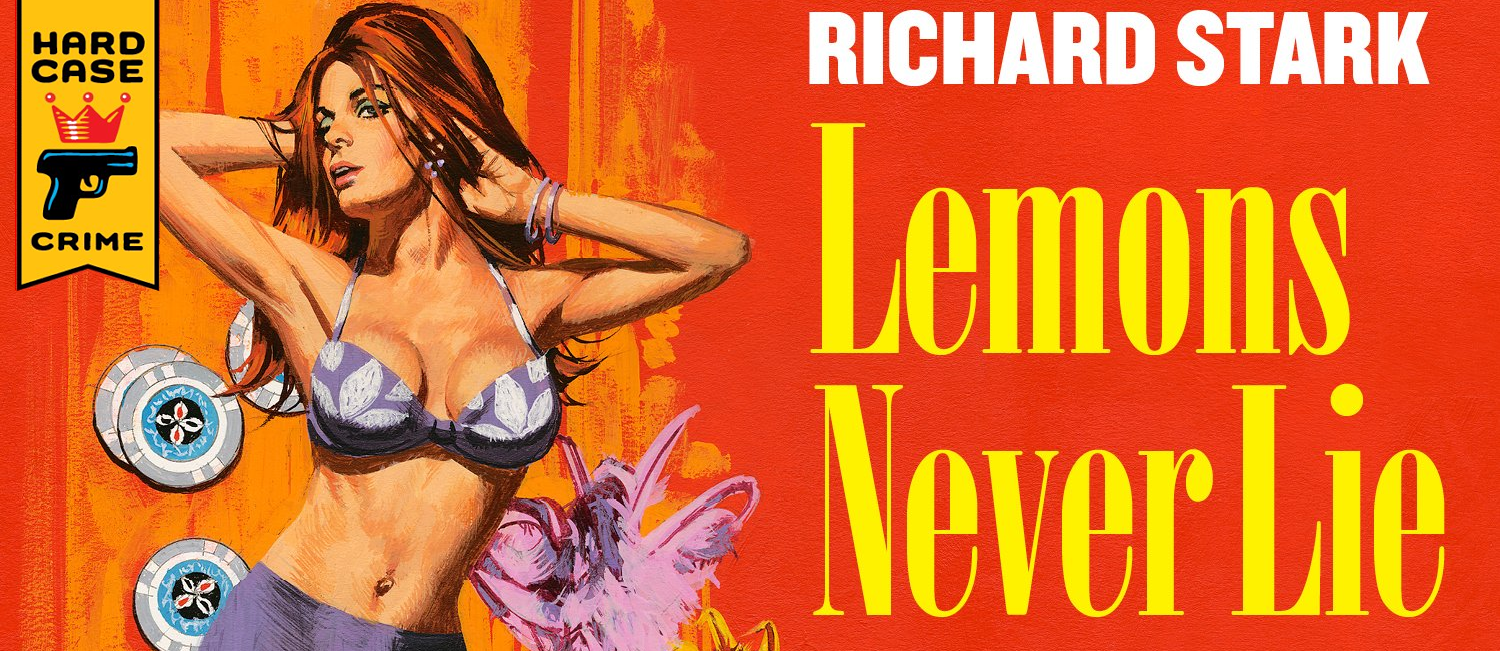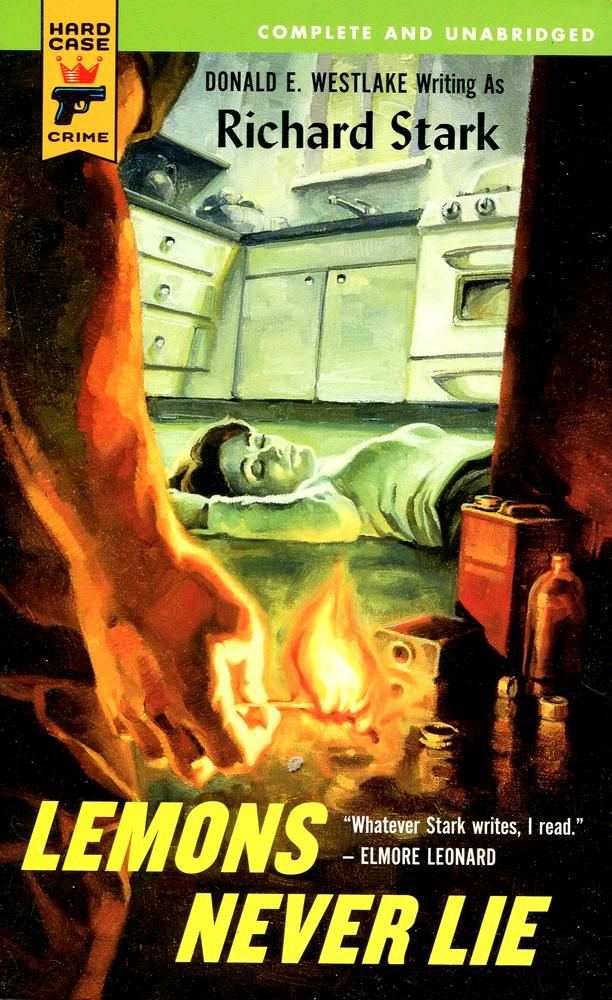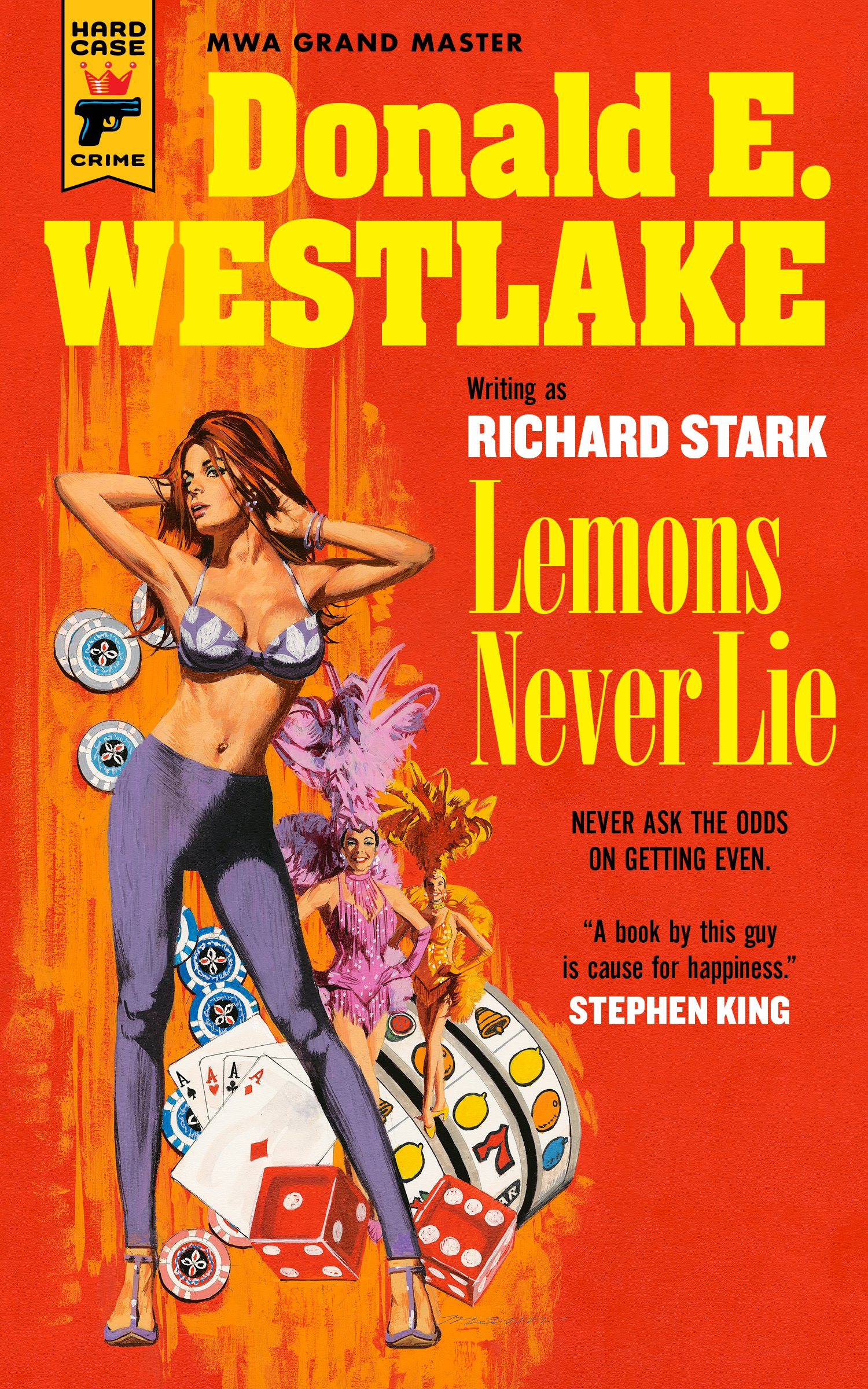tough business:
a parker site
“He’s not a machine” - An Exclusive Interview with Charles Ardai


If you're familiar with crime fiction, odds are you're familiar with Hard Case Crime. The imprint has been absolutely vital in preserving Donald Westlake's work for modern audiences for over twenty years now, with titles ranging from Lemons Never Lie to the never-before-published Memory appearing in their catalogue. Tough Business recently had the honor of interviewing Charles Ardai, co-founder and editor of Hard Case, and longtime Parker enthusiast.
Charles shared some of his memories of Mr. Westlake, a behind-the-scenes look at the reprinting process over at Hard Case, his thoughts on the incomparable Richard Stark novels, and much more! Read the full interview below:
1) How did you first discover Richard Stark's Parker novels? What drew you to them?
In addition to being my favorite living crime writer for as long as I can remember, Lawrence Block became a friend some 30+ years ago, and he in turn was great friends with Donald Westlake. Larry spoke very highly of the Parker books, and I think his praise for them may have been what first got me to pick one up. And he wasn’t wrong about them. They’re tight as a drum, stripped to the bone, absolutely ruthless and delicious. Lots of crime writers try to capture the affect of a professional criminal, but I don’t know any other writer who’s ever done it as persuasively as Westlake when writing in his Richard Stark mode, or made it so satisfying to read.
2) When Levi Stahl interviewed you for the University of Chicago Press blog back in 2010, you mentioned you'd first gotten in touch with Donald Westlake with Lawrence Block's help. What was your impression of Mr. Westlake, and did you ever get the chance to meet in person?
We did meet in person, yes. Larry introduced us, telling Don that he was allowing us to reprint some of his out-of-print early novels in our new Hard Case Crime line and encouraging Don to let us do the same. Initially, Don and I only communicated by email – it was easier and faster than meeting up – but we eventually wound up meeting in person at various spots around NYC (I remember chatting with him once in the long-lost and much-lamented Black Orchid mystery bookstore on the Upper East Side, for instance). In person he was puckish and funny and charming and a little grandfatherly – not elderly, but graying and wearing the mantle of ‘veteran novelist’ comfortably. He was always kind to me, and patient, and good humored – everything you might expect him to be if you’d only read his funnier books, penned under his real name, and nothing at all like Richard Stark. But Stark was in there somewhere the whole time, or the Stark books would never have gotten written.
I take it back – there was one encounter we had where just a touch of Stark emerged. I’d only recently published my first novel, a detective story called Little Girl Lost, which wound up nominated for the Edgar and Shamus Awards that year, but that came later – it was still brand new at this point and I’d sent a copy to Don, and the next time I saw him in person (it may in fact have been the time at Black Orchid), he told me he’d read only the first few chapters, enough to find out the premise of the book but no more than that. Then he paused for a moment and said something like, “I bet it goes like this—” and then he proceeded to guess the entire plot of the book, including my big twist ending, as casually as anything, and of course he was right. He wasn’t saying the book was bad – he’d just been around long enough and both read and written enough mystery novels that it was easy for him to see around corners and past any obfuscation of clues. It was like sitting down to a hand of cards opposite a professional poker player – you just know instantly how far out of your league you are. That was a Stark moment. I was the young would-be heister coming to Parker with the beginnings of a plan, and he was Parker, effortlessly cutting me down to size, not cruelly but just because that’s what a professional does, and if you’re a professional you need to be able to take it.
I still loved the man after that. But I knew never to underestimate him.

3) Out of all of Westlake's work under the Stark name, Hard Case Crime has only ever reprinted Lemons Never Lie -- a Grofield novel, and the last in his spin-off series at that. Why that title in particular? Similarly, what prompted the recent reissue with a new cover?
Lemons Never Lie is easily and indisputably the best of the four Grofield novels, so if we were going to do a Grofield, that was the one to do. And it had never (if I recall correctly) had a paperback publication in the U.S., while all the Parker novels had been published in multiple paperback editions, and may in fact all been in print at that time from the publisher that was bringing out the new ones Don was then writing. It’s possible I’m misremembering and one or more of the old Parker’s might have been out of print and therefore available to us – but even if so, Parker was a live, ongoing series at that time, just as Dortmunder was, and that put it off the table for me. We didn’t want to interfere with something Don was actively doing for some other publisher. Rather, we wanted to excavate and find lost treasure – find something truly obscure, that even his fans (and certainly ours) would most likely not have read and that was really, really good. Lemons Never Lie fit the bill in both respects.
As for why we reprinted it last year with a new cover, it’s very simple: we’d originally published the book in the smaller mass-market paperback format (about 4x7 inches), and over the years we’d sold out of all the physical copies we’d printed. Normally we’d just go back to press when we ran out of copies, but between when we’d last printed the book and now, the mass-market format had gone out of fashion and become prohibitively costly to print in – so the only way to reprint was in the larger (5x8 inch) “trade” paperback format, and as long as we were going to do that, we figured we might as well commission a new piece of cover art, to maybe give fans who already had a copy of the old edition an extra reason to pick up a copy of the new one.
Now, as it happens (more or less randomly), we discovered after we’d done the reprint that Shane Black is making a new Parker movie [Play Dirty] that will (for the first time, I believe) feature Grofield as a character, so even if we hadn’t decided to print a new edition with new art before that movie news got announced, we probably would have decided to do it once we learned that, since when the movie comes out, people who see it might well want to pick up a book featuring the character. But that didn’t factor into the decision when we made it.
4) There have been a lot of varied opinions on the four Grofield novels, and they've often been called downright experimental in comparison to the well-established Parker 'formula'. How do you think they came about? What made Grofield the perfect candidate for a spin-off series?
I think Don probably liked the opportunity to blend his Westlake-style comedy with his Stark-style ruthlessness – Grofield is a pro like Parker, but he’s more human, warmer, funnier. It’s an interesting mix of the two styles. I also think Grofield being a professional actor probably appealed to Don, who was always fascinated with theater and films (and in fact had some success as a screenwriter himself, earning an Academy Award nomination for the screenplay of The Grifters). But it’s hard to say for sure why any writer does what he does. Sometimes an idea just pops into your head and won’t go away so you do it. And if it was enough fun or sold decently enough, you do it again, maybe four times.

5) In your foreword for the University of Chicago Press editions of Deadly Edge, Slayground and Plunder Squad, you spoke quite a bit about Parker as a character; how he doesn't appear to be a happy man, the way he 'turns off' emotion, etc. However, in Deadly Edge he tries to understand Claire's "sense of home" by relating it to his sense of identity, in Butcher's Moon he shows enough genuine emotion over Grofield's kidnapping to shock his fellow heisters. Do you suppose Parker develops over the course of the series through his interpersonal relationships?
I do think Parker develops, but only to a very limited extent – compare it to the extent to which (for instance) Matt Scudder develops over the course of Lawrence Block’s series about him. Even at his most human, Parker is still quite ruthless and calculating and merciless. He’s not a machine, there are a handful of people on the planet he genuinely cares about and for – but only a handful, and otherwise he has a pretty relentless focus on doing his job and doing it well and not being taken advantage of, and so on. I think we’ve all known men like that – they’re not bad people, in their private life they might even be warm and kind, but they have a job, and when they’re on the job, they’re all business. Parker’s job just happens to be crime, and he happens to be on it most of the time.
6) Speaking of, how were you first approached to write the foreword?
I think Levi was casting about for people he felt would have something interesting to say about Westlake or Stark or Parker and remembered me. I was delighted to be asked. It was similar to when Time Magazine asked me to write Don’s obituary when he died – “delighted” would be the wrong word there, obviously, but I felt honored.
7) Looking at Stark's work in the context of his contemporaries, what do you think makes it stand out compared to other crime fiction?
It’s compulsively readable, it’s thrilling, the plots are twisty and satisfying – but those are all things you could say about any great crime novel. What makes Stark stand out even among other great crime novelists, for me, is the sense that you’re getting a glimpse into the mind of an actual professional criminal, and not just any professional but the best there is at what he does. It’s a rough, risky, often thankless career, but it’s still a career and Parker carves out his niche and holds onto it against all odds, and that makes for a really fascinating read. His work has inspired generations of other writers to attempt something similar (just as Chandler, for instance, inspired legions of imitators), but no one has ever done it as well. There’s a reason that when you read a story of this sort, if it’s good you say, “Ah – he’s doing Parker.” Or “He’s going for something like Parker.” Don made that particular style of crime story so much his own that he basically owns it at this point, just as Conan Doyle owns the brilliant Victorian detective with the less brilliant sidekick or Elmore Leonard owns his own peculiar brand of loquacious and irresistible crooks. Every tissue is a Kleenex, every adhesive bandage is a Band-Aid, and every time you see a heist in the Richard Stark mode, you think “Parker.” It’s really a remarkable achievement.